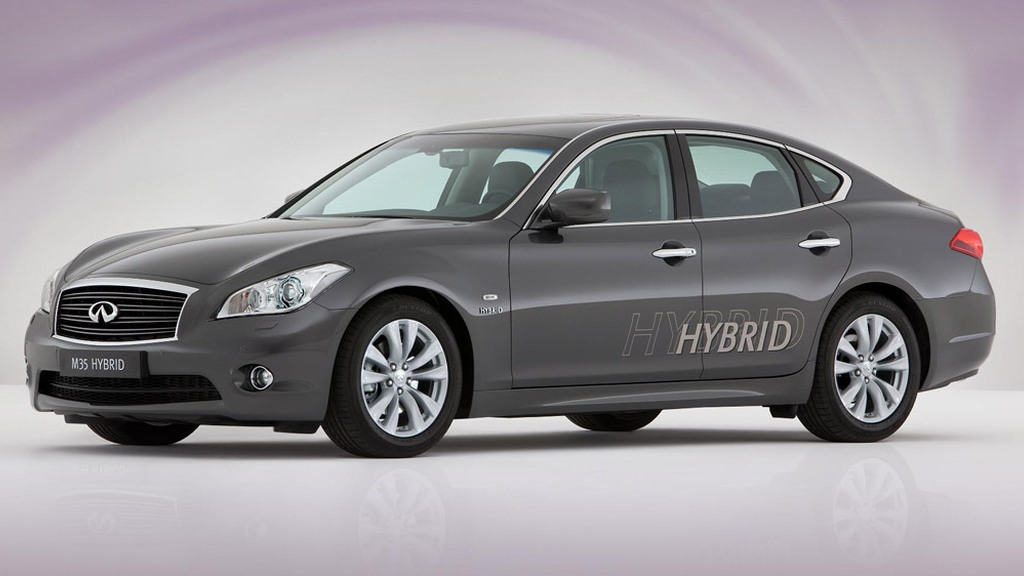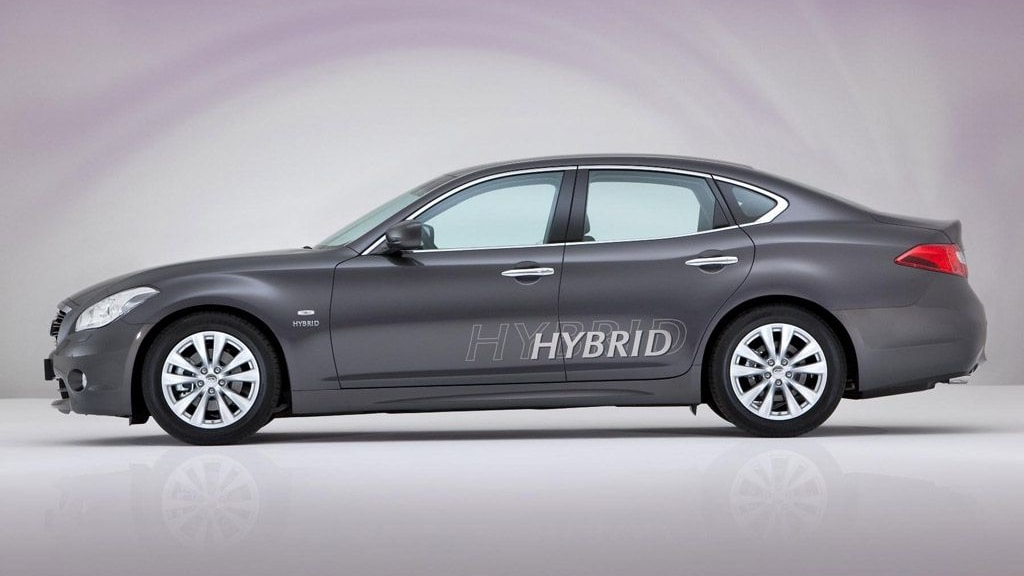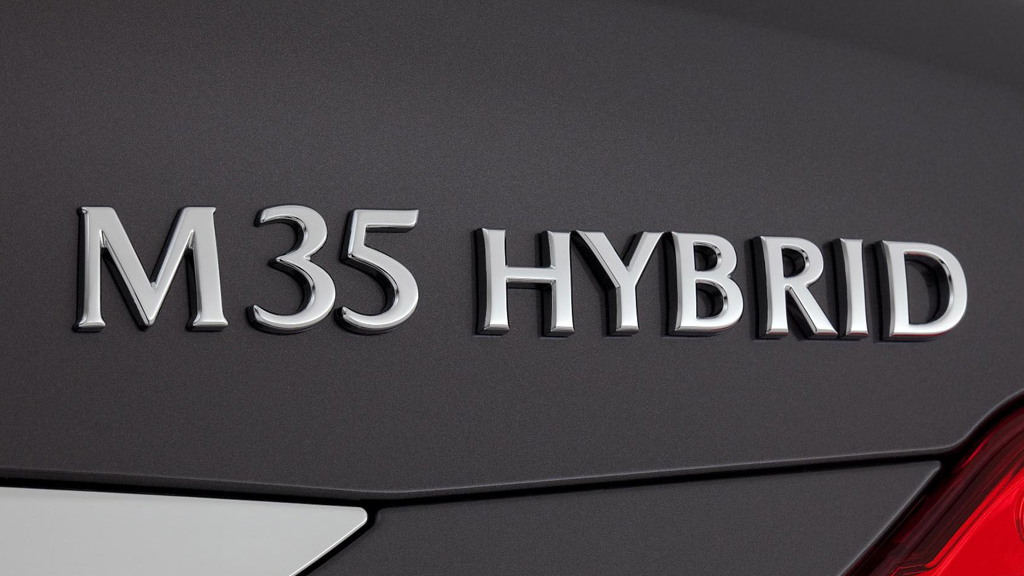Nissan (and its Infiniti luxury division) may have been late to the table when it comes to hybrids but the Japanese automaker is boasting that its new generation of gasoline-electric vehicles will smash the competition out of the water. Nissan claims that its first vehicle fitted with its own proprietary hybrid technology will be able to double the mileage of a comparable gasoline-only model.
The technology will first appear in the 2012 Infiniti M35 Hybrid towards the end of the year, and according to Nissan the vehicle should be between 60 and 90 percent more fuel efficient than the regular V-6 powered M37 sedan. In contrast, most rival hybrid systems only improve fuel economy by about 30 percent.
This is because the Nissan system features a simpler single motor, twin clutch system as opposed to a more complex, two-motor series parallel system like the one found in the Toyota Prius. Not only is it said to be more fuel efficient but also cheaper to manufacture and more reliable.
In the case of the Infiniti M35 Hybrid, a 68 horsepower electric motor is built into the car’s seven-speed automatic transmission and powered by an array of lithium-ion batteries. There are also two separate clutches; the first clutch is installed between the naturally-aspirated 3.5-liter V-6 and the electric motor and allows full decoupling of the engine when in both electric and power regeneration modes. This is done in order to reduce mechanical drag and boost the efficiency of the electric motor. The second clutch connects the electric motor to the drivetrain.
In this fashion, the motor acts as both propulsion unit, either by itself or to boost the V-6 in power assist mode when maximum acceleration is required, and also as a generator. As well as charging the battery in the normal way, the motor recovers energy otherwise lost during deceleration and braking.
The new hybrid system, however, is just one part of Nissan’s arsenal for fighting fuel consumption. Only yesterday the automaker revealed a range of advanced, fuel-saving technologies that it will be introducing over the coming year. These included things like improving engine and transmission efficiencies, engine stop-start systems as well as brake-energy and heat-energy recovery devices.
[Reuters]
















